Best Rust Programming Guides to Buy in February 2026
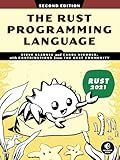
The Rust Programming Language, 2nd Edition


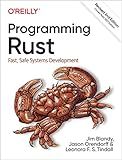
Programming Rust: Fast, Safe Systems Development


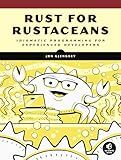
Rust for Rustaceans: Idiomatic Programming for Experienced Developers


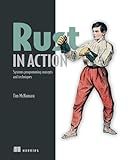
Rust in Action


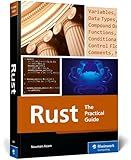
Rust Programming: A Practical Guide to Fast, Efficient, and Safe Code with Ownership, Concurrency, and Web Programming (Rheinwerk Computing)


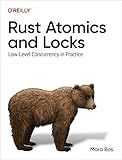
Rust Atomics and Locks: Low-Level Concurrency in Practice



Learn Rust in a Month of Lunches


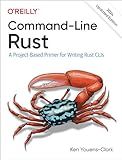
Command-Line Rust: A Project-Based Primer for Writing Rust CLIs


To check if two HashMaps are identical in Rust, you can compare their key-value pairs. First, you can check if the two HashMaps have the same length using the len() method. Then, iterate over one of the HashMaps and check if each key-value pair exists in the second HashMap using the get() method. If all key-value pairs match, then the two HashMaps are identical. You can create a function to encapsulate this logic and return a boolean value indicating whether the HashMaps are identical or not.
What is the impact of the HashMap's ordering on the equality check in Rust?
In Rust, HashMap is implemented using hashing and therefore does not guarantee any specific order of elements. This means that when iterating over a HashMap, the order of elements may differ between runs of the program or even between different instances of the HashMap.
When it comes to equality checks, the ordering of the elements in a HashMap does not affect the equality check itself. The equality of two HashMaps is determined by the equality of their keys and values. If two HashMaps have the same keys and values, they are considered equal regardless of the ordering of the elements.
It is important to note that the ordering of elements in a HashMap should not be relied upon for any operations, as it is not guaranteed and can change based on various factors. It is recommended to use HashMap's keys and values to determine equality and perform any necessary operations.
What is the behavior of the comparison operator for HashMaps in Rust?
In Rust, the behavior of the comparison operator for HashMaps is implemented using the PartialEq trait. Two HashMaps are considered equal if they have the same number of key-value pairs and if for each key in one HashMap, there is a corresponding key-value pair in the other HashMap with the same key and value. The ordering of the key-value pairs does not matter.
For example, if we have two HashMaps:
use std::collections::HashMap;
let mut map1 = HashMap::new(); map1.insert("foo", 1); map1.insert("bar", 2);
let mut map2 = HashMap::new(); map2.insert("bar", 2); map2.insert("foo", 1);
assert_eq!(map1, map2); // This will return true
If the two HashMaps have a different number of key-value pairs or if there is a key in one HashMap that does not have a corresponding key-value pair in the other HashMap, they will not be considered equal.
What is the Rust syntax for comparing two HashMaps for equality?
To compare two HashMaps for equality in Rust, you can use the == operator. Here's an example:
use std::collections::HashMap;
fn main() { let mut map1 = HashMap::new(); map1.insert("key1", "value1"); map1.insert("key2", "value2");
let mut map2 = HashMap::new();
map2.insert("key1", "value1");
map2.insert("key2", "value2");
if map1 == map2 {
println!("The HashMaps are equal");
} else {
println!("The HashMaps are not equal");
}
}
In this example, the two HashMaps map1 and map2 are compared for equality using the == operator. If the HashMaps contain the same key-value pairs, they are considered equal and the message "The HashMaps are equal" will be printed. Otherwise, the message "The HashMaps are not equal" will be printed.
What is the difference between comparing HashMaps by keys versus by values in Rust?
Comparing HashMaps by keys versus by values in Rust involves comparing the keys or values stored in the HashMaps.
When comparing HashMaps by keys, you are typically comparing the keys themselves to determine if two HashMaps are equal. This involves checking if both HashMaps have the same keys, as well as if the corresponding values for each key are equal.
When comparing HashMaps by values, you are comparing the values stored in the HashMaps. This involves checking if both HashMaps have the same values, as well as if the keys associated with those values are equal.
In Rust, you can compare HashMaps by keys or values using the eq() method, which compares the keys and values of two HashMaps to determine if they are equal. Additionally, you can iterate through the keys or values of a HashMap and compare them individually to perform more specific comparisons.
Overall, the main difference between comparing HashMaps by keys versus by values in Rust is what aspect of the HashMap is being compared - the keys themselves or the values stored in the HashMap.
